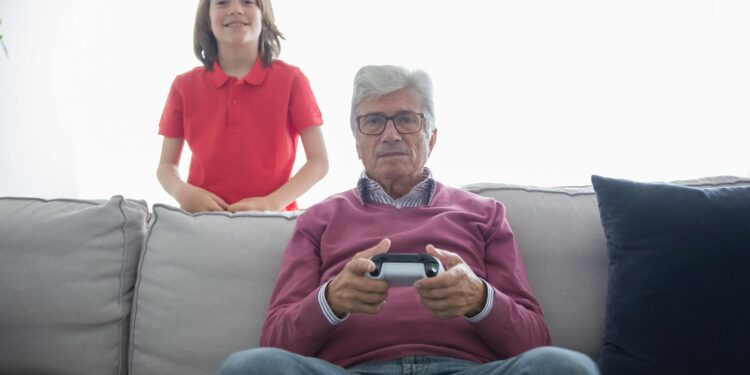Credit: Production Kampus de Pexels
Playing video games can improve your cognitive abilities and exercise may play a role in improving your mental health, but not the other way around, a large-scale study suggests.
The surprise findings are part of the Brain and Body study, a collaboration between Western University and the Museum of Science and Industry for the Manchester Science Festival. A pre-publication of the work is published on PsyArXiv.
More than 2,000 participants from around the world signed up for the study, which asked them to complete a lifestyle survey followed by Creyos online brain games that accurately measure different aspects of cognition, such as memory, attention, reasoning and verbal abilities.
The study, led by renowned Western neuroscientist Adrian Owen, showed that among about 1,000 people who completed all the tasks, playing video games had a positive effect on an individual’s cognition, but did not appear to affect his mental health.
However, exercising more than 150 minutes per week, according to World Health Organization (WHO) guidelines, improves mental well-being but has no effect on cognition.
“Playing video games was associated with improved cognitive abilities, but not better or worse mental health, whereas increased physical activity was associated with improved mental health, but not better or worse cognitive health,” said Owen, a professor of cognitive and imaging neuroscience at Western’s Schulich University. School of Medicine and Dentistry.
According to the study results, people who play video games frequently (five hours or more per week for a single type of game) have on average similar cognitive performance to people 13.7 years younger. People who rarely played video games (less than 5 hours per week for all types of games) behaved like people 5.2 years younger.
Cognitive scores as a function of age for participants over 50 years old. Lines and shaded regions indicate the estimated (predicted) marginal mean score for the age range plotted with 95% confidence intervals. Raw data is represented as individual data points, where color and shape correspond to the group: (purple/circle) those who did not meet the WHO recommendations for 150 minutes of MVPA/week, and (green/triangle) those who respected it. Credit: PsyArXiv (2024). DOI: 10.31234/osf.io/hdj9r
In terms of mental health, participants who met or exceeded the WHO recommendations of 150 minutes of physical activity per week were 12% more likely to report having no symptoms of depression and 9% more likely to have no symptoms of anxiety.
The data also suggests that these differences in mental health are not due to the severely depressed or anxious people participating in the study; Rather, it was physical activity that made the biggest difference at the lower end of both scales, where symptoms were either mild or completely absent.
Brain-body connection
Despite the seemingly obvious examples of the brain-body connection, such as how “hunger” affects the ability to concentrate, stress makes muscles tense, or regular breathing calms the mind, relatively little is understood about how the brain and the body influence each other.
Conducting the survey helped the Western team better understand the connection between lifestyle and the long-term health of our brains.
“The results of this study could help us all choose activities that promote healthy cognitive aging,” Owen said.
Details of the results will be presented by Owen at the Science and Industry Museum on October 19 as part of the Manchester Science Festival, which runs from October 18 to 27. Visitors to the festival will also have the opportunity to participate in a pilot project. study to follow up on these results. While the online survey focused on long-term effects, the Western team will invite festival-goers to help them with a pilot study to examine short-term cognitive improvements resulting from exercise and games.
Owen will also comment on how the brain manages sound and light as part of an artistic commission from the Squidsoup collective for the festival. Inspired by the work of Piet Mondrian, “State of Mind” is a three-dimensional arrangement of LED lights in an intriguing and informative soundscape.
More information:
Conor J Wild et al, Characterizing the cognitive and mental health benefits of exercise and video gaming: the brain and body study. PsyArXiv (2024). DOI: 10.31234/osf.io/hdj9r
Provided by the University of Western Ontario
Quote: Study shows playing video games can improve cognitive performance (October 17, 2024) retrieved October 17, 2024 from
This document is subject to copyright. Except for fair use for private study or research purposes, no part may be reproduced without written permission. The content is provided for informational purposes only.



